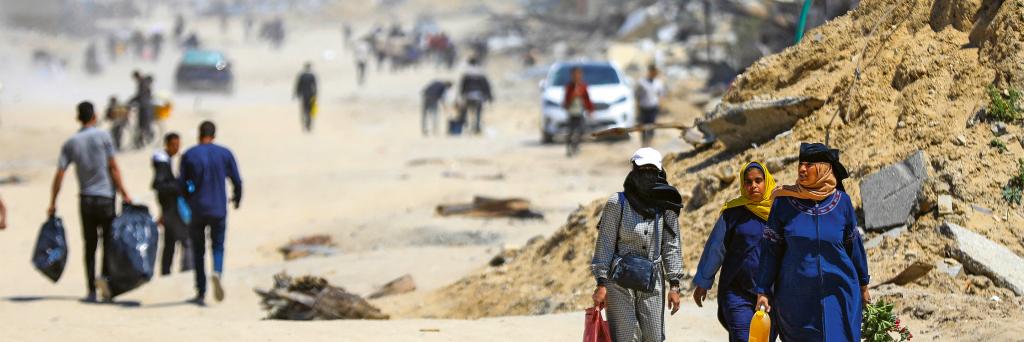In dark times, when political avenues appear as dead ends, we look elsewhere for hope, and often to courts that promise to deliver justice. In the international sphere, it is the International Court of Justice (ICJ) — with its seat in the splendid Peace Palace in The Hague — that most embodies this hope.
States have turned to the ICJ for many causes in recent years, but it is the case brought by South Africa against Israel over Gaza that has captured public attention the most. The Court’s order on provisional measures in January made headline news, and it was live-streamed for a global audience. The ruling provided a response to hopes for some measure of justice in the face of a dire situation, most of all through a powerful expression of the facts and through the finding that “at least some of the rights claimed by South Africa and for which it is seeking protection are plausible”, in particular “the right of the Palestinians in Gaza to be protected from acts of genocide”.
The finding is remarkable as it reflects widespread concerns about potential genocide being committed in Gaza. It also projects unity — at a time of major division in international society, the fact that the order was supported by 15-2 and 16-1 majorities is a significant statement that surprised many observers.
The price of that unity, however, is vagueness. Vagueness first because the court does not specify which acts might constitute violations of the Genocide Convention. Vagueness also in the provisional measures themselves,which largely reproduce the wording of the Convention. In late March, the Court took a further step and required specific types of humanitarian assistance. Yet it again stopped short of demanding a ceasefire, as requested by South Africa and widely seen as the only effective measure to limit civilian suffering. This drew much criticism, including from seven of the judges. Even the UN Security Council had eventually come together to demand a ceasefire three days earlier.
Lawyers know, of course, that courts are rarely saviours. The ICJ’s jurisdiction here was limited to the Genocide Convention and did not extend to other questions of international law, and the Court is rather conservative in any event. Yet for a broader public, the limitations of its orders must have come as a disappointment — as well as a sobering realisation that too much cannot be expected from a court which, after all, is subject to significant political constraints. Courts draw much of their authority from the aura of a “court of justice”, but after all, they are institutions of law, and only exceptionally can they redeem the broader promise off which they live.
This article was published in Globe #33, the Graduate Institute review.




